Discovering Lagos, Nigeria: Lagos Lagoon, Lekki Conservation Centre, Murtala Muhammed International Airport, Freedom Park
The Lagos Lagoon is a significant water body in Lagos, Nigeria, and it plays a crucial role in the city’s geography, commerce, and daily life. Here’s an overview of the Lagos Lagoon:
Geography and Location:
The Lagos Lagoon is situated along the southwestern coast of Nigeria. It is part of the extensive network of water bodies in the region and is connected to the Gulf of Guinea.
Formation:
The lagoon is formed by the low-lying coastal topography of the area. It is characterized by a network of inlets, creeks, and estuaries, creating a dynamic and ecologically diverse environment.
Size and Extent:
The Lagos Lagoon is expansive, covering a significant area along the coast. It is an integral part of the Lagos metropolitan area and has both natural and artificial channels.
Economic Significance:
- Navigation and Transportation:
- The lagoon provides natural waterways that have historically been used for transportation. Traditional wooden boats and modern watercraft navigate its channels, facilitating the movement of goods and people.
- Fishing Industry:
- Fishing is a significant economic activity around the Lagos Lagoon. It supports local communities and contributes to the city’s food supply.
- Commerce and Industry:
- The lagoon’s waterfront areas have been developed for commercial and industrial purposes. Warehousing, ports, and other businesses take advantage of its strategic location.
Ecological Importance:
- Biodiversity:
- The Lagos Lagoon is home to a variety of aquatic species, including fish and other marine life. Mangrove forests and wetlands along its shores contribute to the local ecosystem’s biodiversity.
- Bird Watching:
- The lagoon and its surrounding areas are popular spots for bird watching. The diverse habitats attract various bird species, making it an attraction for ornithologists and nature enthusiasts.
Recreation and Tourism:
- Waterfront Resorts:
- Some areas along the Lagos Lagoon have been developed into waterfront resorts and recreational spots. These locations offer a serene environment for relaxation and leisure activities.
- Boat Cruises:
- Boat cruises on the lagoon provide residents and visitors with a unique perspective of the city. These cruises offer scenic views of the skyline and waterfront.
- Waterfront Parks:
- Parks and recreational areas along the lagoon provide spaces for outdoor activities, picnics, and social gatherings.
Challenges:
The Lagos Lagoon, like many urban water bodies, faces challenges such as pollution, encroachment, and environmental degradation. Efforts are made to address these issues and promote sustainable management practices.
Cultural Significance:
The Lagos Lagoon is an integral part of the cultural identity of Lagos. It has influenced the city’s history, trade, and way of life, contributing to the vibrant and dynamic character of Lagos.
Exploring the Lagos Lagoon allows residents and visitors to connect with the city’s rich natural and cultural heritage. It serves as both a functional waterway and a recreational space, adding vibrancy to the urban landscape.
Lekki Conservation Centre: Lagos Nature Reserve
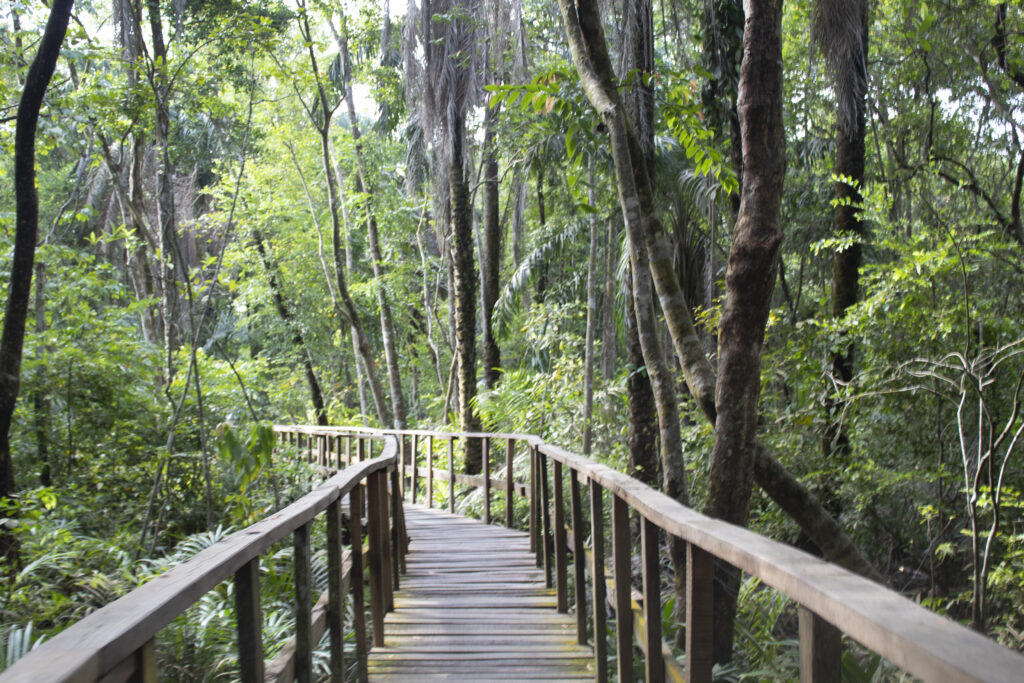
The Lekki Conservation Centre (LCC) is a nature reserve and conservation center located in Lekki, Lagos, Nigeria. It is one of the leading conservation initiatives in the country, providing a natural habitat for various wildlife species and offering environmental education and recreational activities. Here’s an overview:
Location:
Lekki Conservation Centre is situated in the Lekki Peninsula, specifically along the Lekki-Epe Expressway. It is easily accessible from different parts of Lagos.
Establishment:
The Lekki Conservation Centre was established in 1990 by the Nigerian Conservation Foundation (NCF), a non-governmental organization dedicated to environmental conservation.
Key Features:
- Nature Reserve:
- The center includes a vast expanse of natural habitats, including wetlands, grasslands, and a variety of flora.
- Canopy Walkway:
- One of the highlights of the Lekki Conservation Centre is its canopy walkway, which is the longest canopy walkway in Africa. It provides visitors with a unique perspective of the surrounding landscape and a chance to observe the flora and fauna from above.
- Bird Watching:
- The conservation center is home to a diverse range of bird species, making it an ideal location for bird watching enthusiasts.
- Swamp Lookout Station:
- There is a swamp lookout station that allows visitors to observe the wetland ecosystem and the creatures that inhabit it.
- Nature Trails:
- Nature trails wind through the reserve, providing an opportunity for visitors to explore the natural surroundings on foot.
- Conservation and Education:
- The Lekki Conservation Centre is actively involved in environmental conservation and education. It conducts programs and activities aimed at raising awareness about conservation issues and promoting sustainable practices.
- Recreational Areas:
- The center has designated areas for picnics and relaxation, providing visitors with a serene environment to enjoy nature.

Community Engagement:
The Lekki Conservation Centre engages with local communities to promote environmental awareness and sustainable living practices.
Visiting:
The Lekki Conservation Centre is open to the public, and visitors can explore its various attractions. There is usually an entrance fee, and guided tours may be available.
Events and Programs:
The center hosts events, workshops, and educational programs focused on environmental conservation and sustainability.
For the most current information on visiting, events, and programs at the Lekki Conservation Centre, it is advisable to check with the center directly or visit their official website.
Lagos Airport: Murtala Muhammed International

Murtala Muhammed International Airport (LOS) is the primary international airport serving Lagos, Nigeria. Named after Nigeria’s former military head of state, General Murtala Muhammed, the airport is a major gateway for air travel in West Africa. Here’s an overview:
Location:
Murtala Muhammed International Airport is located in Ikeja, a suburb of Lagos, Nigeria. It is approximately 22 kilometers (14 miles) northwest of the city center.
History:
The airport is named in honor of General Murtala Muhammed, who played a key role in Nigeria’s history. The international airport was originally commissioned in 1979 to replace the old Lagos International Airport (Ikeja Airport).
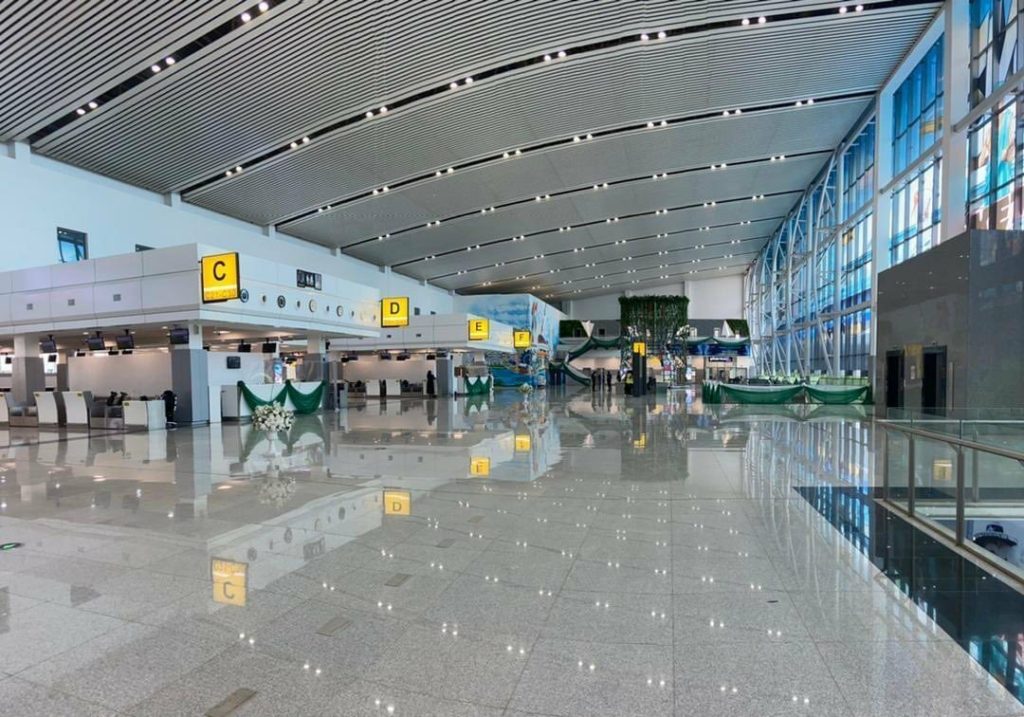
Terminal Facilities:
The airport has both an international and a domestic terminal.
- International Terminal (MMA1):
- The Murtala Muhammed International Airport’s main international terminal is often referred to as MMA1. It serves as the departure and arrival terminal for international flights.
- Facilities include immigration services, customs, baggage claim, lounges, duty-free shops, and various service counters.
- Domestic Terminal (MMA2):
- The airport also has a domestic terminal known as MMA2, operated by Bi-Courtney Aviation Services Limited. It caters to domestic flights and provides similar facilities to the international terminal.
Airlines and Destinations:
Murtala Muhammed International Airport is a hub for several Nigerian and international airlines. It offers flights to a wide range of destinations across Africa, Europe, the Americas, and other parts of the world.
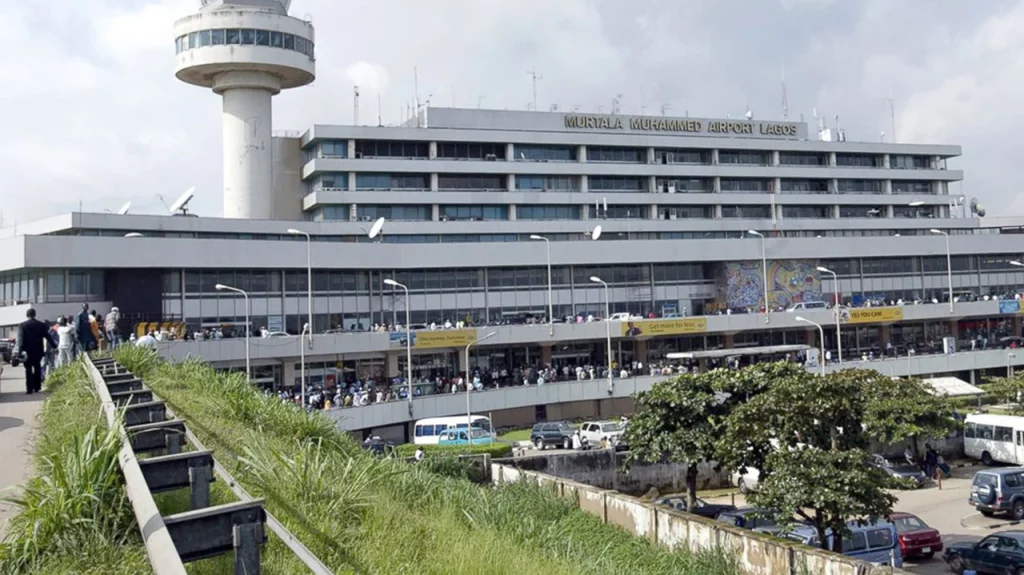
Infrastructure and Expansion:
Over the years, there have been discussions and plans for the expansion and modernization of Murtala Muhammed International Airport to accommodate the growing air travel demands. Such projects aim to enhance the airport’s capacity, efficiency, and passenger experience.
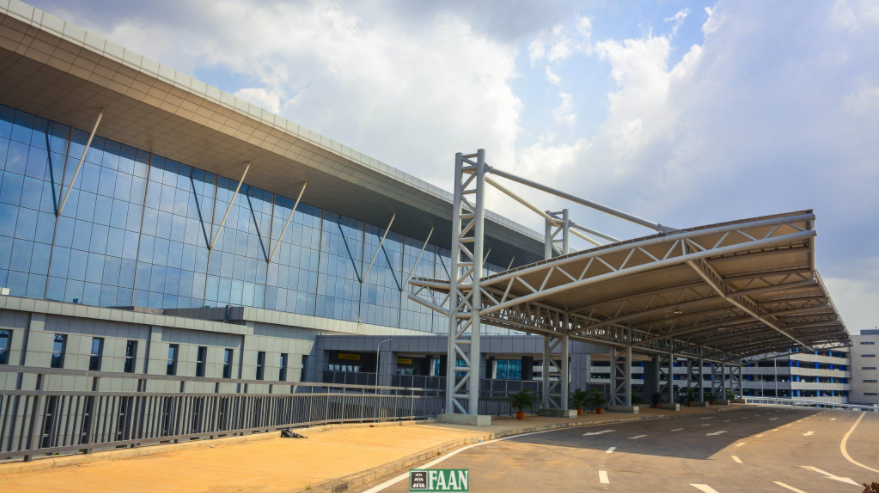
Ground Transportation:
The airport is well-connected to the city and surrounding areas. Ground transportation options include taxis, car rental services, and shuttle services. There are also plans for the construction of a rail line to connect the airport to the city center.
Security:
Like any major international airport, Murtala Muhammed International Airport places a strong emphasis on security. Security measures are in place to ensure the safety of passengers and airport facilities.
Freedom Park: Lagos Historical Park

Freedom Park is a historical and recreational park located in the heart of Lagos Island, Nigeria. Here’s an overview:
Location:
Freedom Park is situated on Broad Street in Lagos Island, near Tafawa Balewa Square. It occupies the site of the former Old Broad Street Prison, which was a colonial-era prison.
History:
The park has historical significance as it was originally a colonial prison used during the British colonial rule in Nigeria. The Old Broad Street Prison, known for its harsh conditions, was repurposed to become Freedom Park as part of efforts to preserve historical landmarks and create a public space.
Features:
Freedom Park serves as a multifunctional space that blends history, culture, and recreation. Key features include:
- Memorial:
- The park includes a memorial that pays tribute to those who fought for Nigeria’s independence.
- Art Installations:
- Freedom Park is adorned with various sculptures and art installations that contribute to its aesthetic appeal.
- Amphitheater:
- The park has an amphitheater that hosts cultural events, musical performances, and theatrical productions.
- Museum:
- There is a museum within Freedom Park that provides insights into the history of Nigeria, particularly its struggle for independence and the impact of colonialism.
- Gardens:
- The park features well-maintained gardens where visitors can relax and enjoy the surroundings.
- Cafes and Restaurants:
- Freedom Park has cafes and restaurants where visitors can enjoy meals and refreshments.
- Cultural and Entertainment Events:
- The park hosts a variety of cultural events, including music concerts, art exhibitions, and festivals.
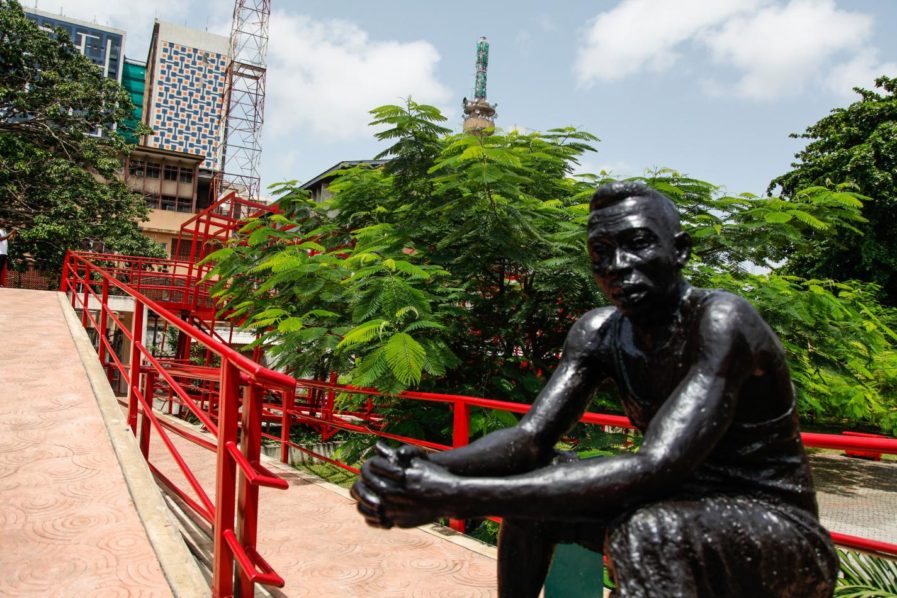
Community Space:
Freedom Park serves as a community space where residents and visitors can gather for recreational activities, cultural events, and educational programs.
Preservation of Heritage:
The conversion of the former prison into Freedom Park is an example of efforts to repurpose historical structures for positive community use while preserving the country’s cultural heritage.
Visiting:
Freedom Park is open to the public, and visitors can explore the historical and cultural aspects of the park. It is a popular destination for both tourists and locals seeking a combination of history, art, and relaxation.

